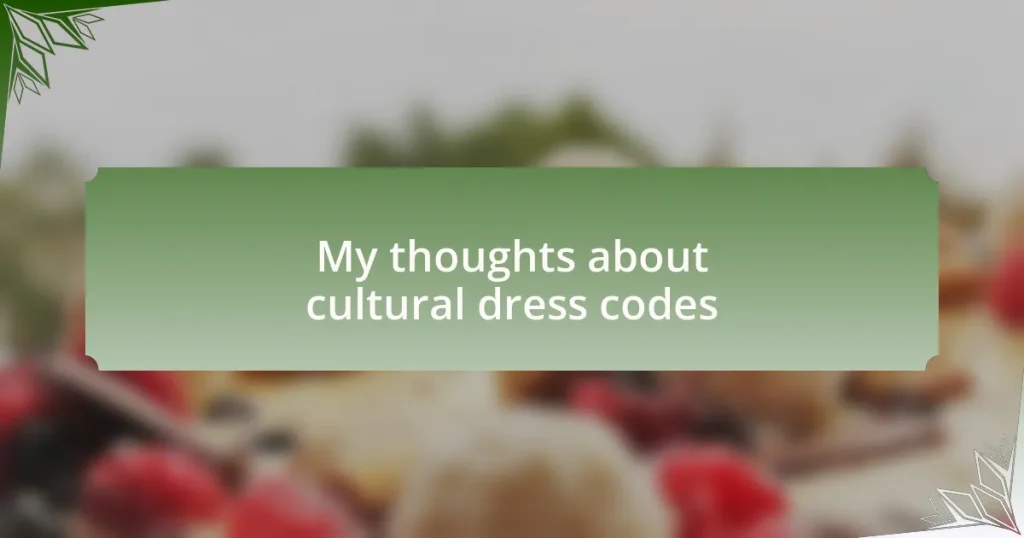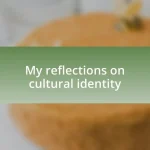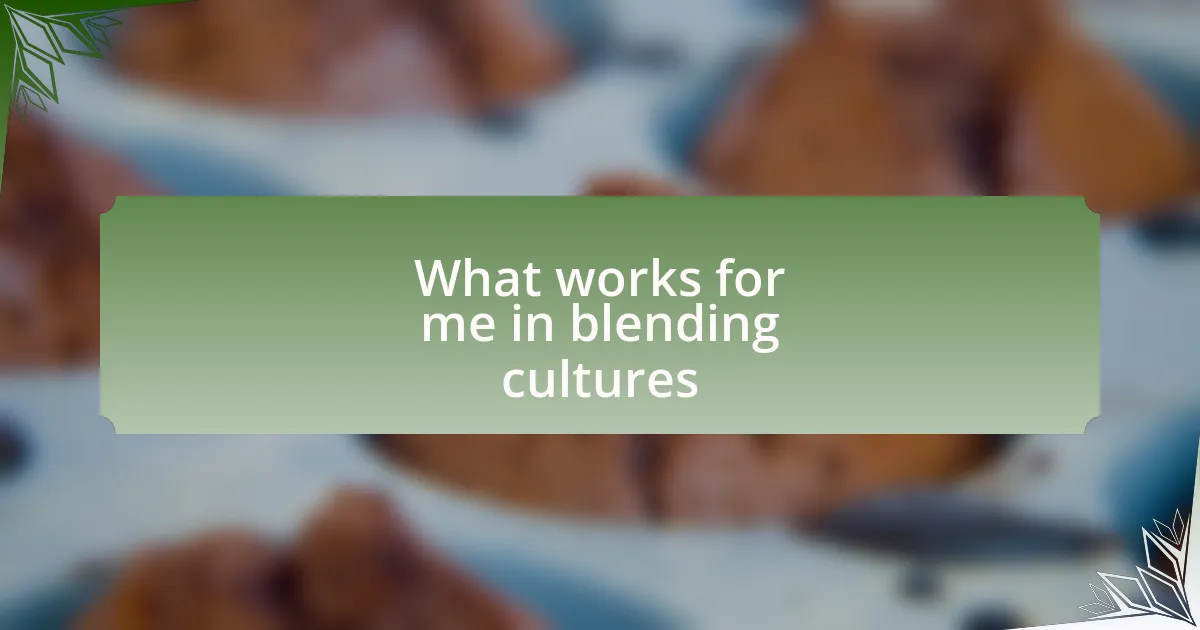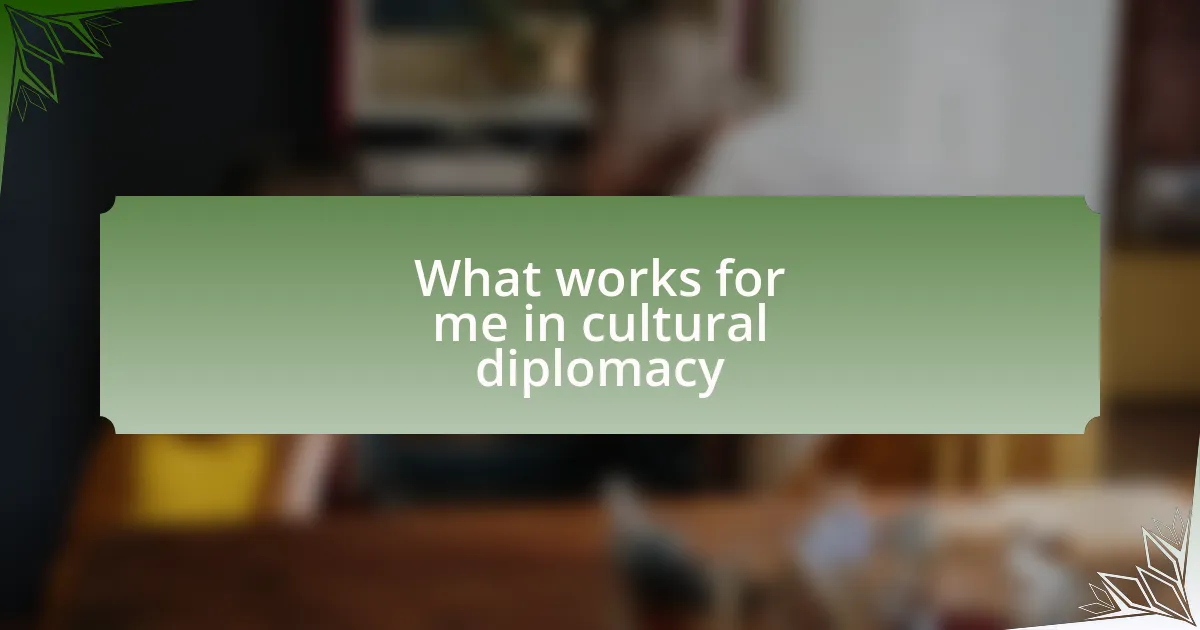Key takeaways:
- Cultural dress codes are vital expressions of identity, reflecting social values and beliefs, enhancing communal celebrations.
- They create an atmosphere of respect and unity, bridging generational gaps and connecting individuals to their heritage.
- Dress codes in wedding contexts vary widely, influenced by cultural traditions, time of day, and the couple’s vision, impacting the overall mood of the event.
- Embracing cultural attire allows for self-expression while honoring collective traditions and shared experiences.
Author: Evelyn Carter
Bio: Evelyn Carter is an award-winning author known for her gripping psychological thrillers and captivating contemporary fiction. With a background in psychology, she skillfully weaves intricate character studies and suspenseful plots, engaging readers from the first page to the last. Her debut novel, “Shadows of the Mind,” was praised for its sharp insights and unexpected twists, earning her a place among the best new voices in literature. When she’s not writing, Evelyn enjoys exploring the great outdoors and volunteering at her local animal shelter. She lives in Portland, Oregon, with her two spirited rescue dogs.
Understanding cultural dress codes
Cultural dress codes are fascinating expressions of identity and tradition. I remember attending a wedding where guests were encouraged to wear traditional attire from different regions. It was a captivating sight, showcasing diverse garments that celebrated each culture’s uniqueness, and it sparked conversations among guests about their heritage.
Each culture has its own dress codes that often reflect social values, beliefs, and customs. For instance, attending a traditional Indian wedding requires specific attire like saris or lehengas, which not only honor the celebration but also connect us to the rich tapestry of our heritage. Have you ever considered how what we wear can tell a story?
Navigating these dress codes can sometimes feel daunting. I recall feeling hesitant about my choices at a multicultural wedding, unsure if my outfit would fit in. Yet, I soon realized that embracing cultural dress codes isn’t just about conformity; it’s about honoring the celebration and connecting with its deeper significance. There’s a sense of warmth and inclusion when everyone participates in this shared experience.
Importance of cultural dress codes
Cultural dress codes hold significance beyond mere aesthetics; they are a bridge between generations and a way to honor the past. I once attended a wedding where the groom wore a stunning traditional outfit passed down through his family. That moment reminded me of the stories tied to garments, and how they serve as a continuum, linking us to our ancestors.
When guests embrace cultural attire, it fosters an atmosphere of respect and appreciation. I remember a wedding in which participants wore kimonos, and the beauty of each outfit sparked a chain reaction of admiration. Isn’t it incredible how a shared dress code can break down barriers and create a sense of unity among diverse guests?
Moreover, these dress codes present an opportunity for self-expression. At a recent wedding, I chose to wear a modern twist on a traditional dress, blending both my heritage and personal style. It made me wonder, how often do we get to express ourselves while also celebrating something greater than ourselves? Embracing cultural dress codes helps us honor our individuality while being part of a collective narrative.
Dress codes in wedding contexts
Dress codes can vary widely in wedding contexts, often dictated by cultural traditions or the couple’s vision for their special day. I recall a summer wedding where the invitation specified a “tropical formal” dress code. Guests arrived adorned in bright colors and light fabrics, creating a vibrant, festive atmosphere that mirrored the location. Isn’t it fascinating how dress codes can evoke an entire mood and environment for the celebration?
At a destination wedding in the mountains, I witnessed how cozy attire became essential, reflecting the surrounding nature while still maintaining elegance. Some attendees paired stylish jackets with formal shoes, balancing comfort and tradition beautifully. It made me think about the practicality of dress codes—how they cater not only to the couple’s wishes but also to the guests’ comfort and the setting’s demands. Isn’t it wonderful when everyone can participate joyfully while feeling at ease?
Even within the same cultural framework, dress codes can differ significantly based on the time of day or venue type. For instance, I attended an evening wedding where formal black tie was the requirement, creating an air of sophistication and ritual. Yet, earlier in the day, the same couple had celebrated with a casual brunch affair, where sundresses and light slacks were the order of the day. This duality highlighted how flexible and dynamic dress codes can be, shaping our expectations and experiences at weddings. How do you feel about the evolving nature of dress codes in different contexts?




